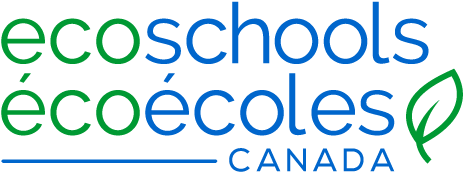While science and geography are often easily connected to environmental education, the field has expanded over the years to span multiple disciplines.
Ontario EcoSchools focuses on connecting learning and action in the hopes that both the ‘why’ and the ‘how’ can be understood and integrated by students. We work from the premise that students will more likely internalize new environmental knowledge when they understand how their everyday actions connect to bigger picture issues. As well, teaching about the environment across subject areas allows for different learning styles to be accommodated and for different facets of the issues to be explored.
Here are some approaches to engaging in inter-disciplinary environmental learning at your school.
Professional Learning Communities (PLC)
PLCs are groups of educators who meet regularly, share expertise, and work together to develop dynamic learning activities that engage students and enhance academic performance. PLCs are a great way for educators to collaborate and cross-pollinate on environmental themes. Consider doing this in-person through an interdisciplinary team at your school, as part of a board-wide group, at an educational conference, or online. One innovative online example includes the @RangerRidley #EnviroEd chats on twitter, where multiple resources and ideas are shared regularly.
Integrated Learning Models
An integrated learning model teaches core concepts and skills by connecting multiple subject areas to a unifying theme or issue. This is another excellent way to enrich environmental learning at your school.
“Research has consistently shown that students in integrated programs demonstrate academic performance equal to, or better than, students in discipline-based programs. In addition, students are more engaged in school, and less prone to attendance and behavioural problems.” Access the whole report here.
Some of the most innovative examples bring real world projects into classroom learning. For instance, one school planted trees on their school grounds and actively engaged a number of classes in the process. Math classes decided on the best circumference and spacing for the trees, geography classes determined the best native species to plant in their ecozone, and art classes designed the gardens and plants that would surround the trees.
Elementary School Case Study – Seed Paper: five subject integration
At Trille des Bois elementary school, in the Conseil des écoles publiques de l’Est de l’Ontario (CEPEO), a Grade 3 learning activity included making paper that grew into vegetation.
Students made handmade, artisanal paper with flower and herb seeds, and their investigation took place across five disciplines: French, math, science, art and social studies. They read books and made posters in French class, used measurements in math, in science they learned about the life cycle of the plants and vocabulary. Students made the paper in art class and then participated in the sale of the products at the winter fair and for Earth Day, focusing on community outreach in social studies. Through this process, classes learned about the production of paper and that paper comes from trees. They also learned about the importance of non-renewable environmental resources.
Secondary School Case Study – Garden project: math, hospitality and community connections
At St. Luke Catholic High School in the Catholic District School Board of East Ontario (CDSBEO), the school garden program is integrated across multiple grades. Bringing the garden into the classroom in multiple grades is an excellent way to use outdoor spaces and increase knowledge of the purpose and importance of growing local food.
The garden program is taught in three different Grade 9 courses: science, mathematics and English, and each year grade 9 classes are responsible for planning, planting, and harvesting the produce. Grade 10 students create a plant business in their math classes. Canning garden produce is taught in the Grade 11/12 hospitality course. In the summer, the Salvation Army tends the garden and uses the produce in food boxes for the local community.
For those interested in adapting and integrating these ideas, please note that interdisciplinary environmental lessons can be claimed in the Curriculum section of the Ontario EcoSchools certification application

Recent Comments